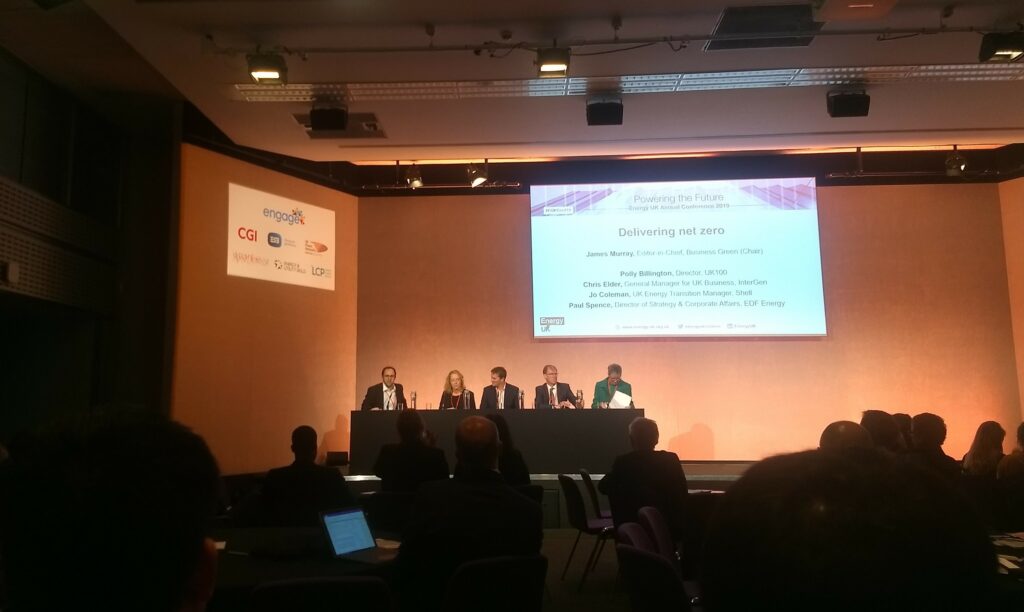The UK’s focus should be getting back on track with the carbon budgets and creating policy that enables net zero instead of exploring earlier targets, according to industry experts.
Speaking on a panel addressing delivering net zero at an EnergyUK conference yesterday, Polly Billington, director of UK100, said the UK needs to act fast to deliver net zero but “neither policy or politics is enabling that to happen”.
With the governments focus currently being on Brexit, the industry can’t get any traction in Whitehall, Billington said. If the political bandwidth that is being spent on Brexit was being spent on net zero, “we might actually be going somewhere,” she expanded.
“The biggest barrier [to net zero] is politics, followed by finance.”
The topic of the varying dates announced to achieve net zero, from Labour’s 2030 ambitions to Extinction Rebellion’s call for 2025, was also heavily discussed, with Billington saying “dates immediately become political rather than scientific”.
“I’m not sure there’s the political will to achieve any of the targets set,” Billington continued, adding that she would believe any of the targets set by the political parties could be met “if we see movement now”.
Concerns over policy backing to achieve net zero target is rife across industry and politics alike. The Science and Technology select committee branded the policy shortfall “unacceptable” and recently a letter co-signed by the heads of the Renewable Energy Association, Good Energy, Zenobe and Kaluza among others called on the government to follow through on a raft of policy promises.
Also speaking on the panel, Jo Coleman, energy transition manager at Shell UK, said the UK needs to get back on track to meet the fourth and fifth carbon budgets before it can look at moving net zero earlier than the current legally-binding 2050 target.
“The key thing is action, to get back on track,” Coleman added.
The UK is currently falling behind on meeting the fourth and fifth carbon budgets, in 2027 and 2032 respectively. It outlined its plans for meeting the targets in the Clean Growth Strategy, however those measures fell 6% and 9% short respectively.
The government has been warned by the Committee on Climate Change not to use so-called ‘flexibilities’ to plug that gap, whereby over-performance from previous budgets makes up for any under-achievements.
When questioned by Current± last year, BEIS’ deputy director of clean growth and carbon budgets Olivia Haslam insisted flexibilities remained “on the table” and in June, reports suggested the government is prepared to use these flexibilities to meet the budgets.
Paul Spence, director of strategy and corporate affairs at EDF Energy, said: “If we’re going to get the economy there by 2045 or 2050, electricity has to be decarbonised much, much sooner.
“The urgency is there.”





